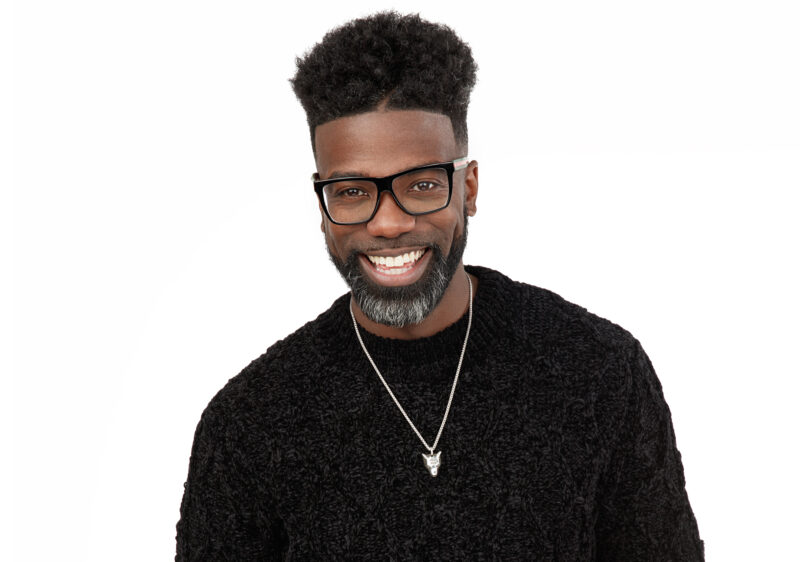One of my favorite stories in Scripture is found in 1 Samuel 14. The Israelites found themselves at war—again—with the Philistines, and it wasn’t going well. The biggest challenge was a shortage of weapons. Only King Saul and his son Jonathan had swords, which made going into battle tricky. Even if everyone had had a sword, however, they were also vastly outnumbered. Saul and his six hundred fighting men were camped out, trying to decide what to do, while the Philistines waited with “three thousand chariots, six thousand horsemen, and so many soldiers that they were as thick as sand along the seashore” (1 Samuel 13:5, TLB).

Jonathan decided to sneak away to get a closer look at one of the enemy outposts. So the prince and his bodyguard crept down this narrow pass, and then Jon delivered the best action-movie line of all time. Forget Braveheart or Black Hawk Down. Forget Rambo. Jonathan turned to his bodyguard and said, “Let’s go across to those heathen. Perhaps the Lord will do a miracle for us. For it makes no difference to him how many enemy troops there are!” (14:6, TLB).
Don’t miss this: Jonathan moved forward on a perhaps.
But that’s not even the craziest part. In response, Prince Jon’s bodyguard said, “Do as you think best; I’m with you heart and soul, whatever you decide” (verse 7, TLB).
I’m literally screaming right now at how gangster that is. The Bible doesn’t say so, but in my imagination, heaven was a little caught off guard. (According to the Gospels, Jesus often marveled at expressions of great faith, so it’s not a completely outlandish notion.) I can almost see God yelling, “They said what? Wait— where are they going?” Even though He’s never really surprised, I bet He still gets excited every time somebody says “Perhaps the Lord will” and moves forward in faith.
Maybe you’re deeply risk averse. Reading 1 Samuel 14 gives you hives. You like your life predictable, consistent, and safe. You say things like “Rome wasn’t built in a day” and “The tortoise wins every time.” You govern your life, family, and work with measured care, and it has paid off insofar as you’ve never had a major setback. But you’ve also never had an exponential success.
Or maybe you’re highly risk-tolerant. You’re all about the big leap. In fact, either you’ve just jumped or you’re getting ready to do so, because you love leaping—almost (but not quite) for its own sake. It’s thrilling. You say things like “God’s got this” and “We’ll fix it in postproduction.” Some of the time your leaps pay off, but you’re no stranger to uncontrolled free fall either. Somehow, so far, you’ve managed to bounce back from failure. But who’s to say whether the next leap will be your last?
What if there’s a third option? What if inertia isn’t an inevitable side effect of wisdom? What if recklessness isn’t the only way to take a leap of faith?
Faith isn’t blind. It has weight and mass. Hebrews 11:1 says, “Faith is the substance of things hoped for, the evidence of things not seen” (NKJV).
As bold and eager as Jonathan was, he didn’t just run full speed toward the Philistines’ outpost, swinging his sword over his head. He devised a plan to move forward far enough to be seen but not far enough to be in harm’s way. He and his bodyguard would show themselves and, based on the enemy’s response, decide whether to continue moving forward or run for their lives. (You can read how their gamble paid off in 1 Samuel 14:8–23.)
“I’m with you heart and soul, whatever you decide” sounds reckless, but what if the prince’s bodyguard had been watching him take wise risks for years? If he had seen Jonathan balance risk-taking with strategy and godly counsel time and again, it’s no wonder he was so confident in his leader’s decision-making ability.
Wisdom and leaps of faith aren’t opponents; they’re dance partners. Risk and strategy aren’t adversaries; they’re comrades. You can be risk averse and still learn to take leaps of faith that feel comfortable. You can be drawn to every risk that you see and still be intentional in your journey. Taking a risk doesn’t have to mean throwing caution to the wind. In fact, when I contemplate a risk, I start with the worst-case scenario and plan from there. What if this is an absolute disaster? Can I live with the consequences? How long would it take to recover from a setback? (If recovery is unlikely, it’s not a risk; it’s self-destruction. I won’t do it.) What can I do now to mitigate some of the fallout if it all goes horribly wrong?
When I decided to hire Destiny Church’s first staff members, we didn’t have the monthly revenue to cover additional employee salaries. However, I was reasonably certain that adding ministry staff would eventually, among other things, increase congregational giving. But what if it didn’t? Could I ask someone to leave a reliable source of income for their family and just trust that it would all work out? No. I couldn’t ask someone to risk a setback they would struggle to recover from. So I waited to hire staff until we had one year’s salary for each new employee in our savings account. Hiring was a risk, but we had more than a wish and a prayer. We had wisdom plus peace plus godly counsel, which is the formula for a confident leap of faith.

























